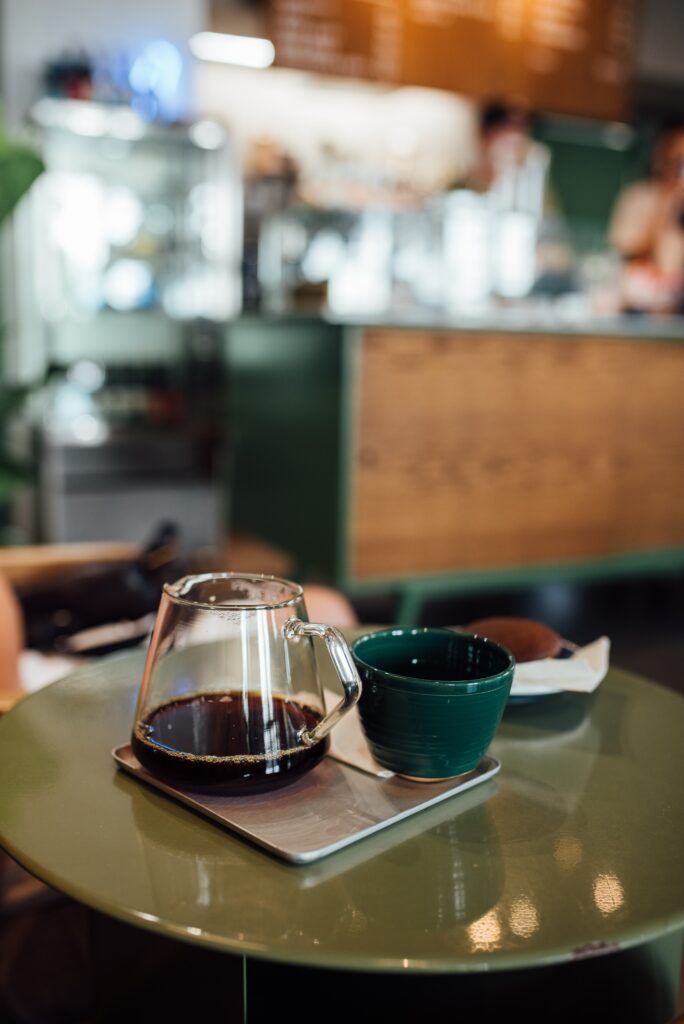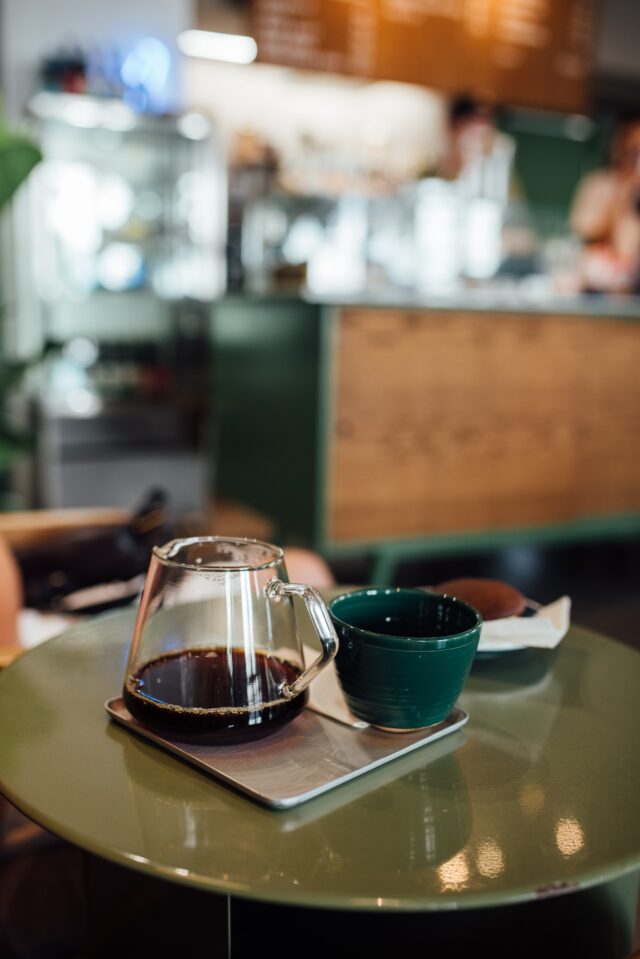With an open heart, you might be questioning whether there are suggested substitutes to wine for drink pairings. You’re not alone in this inquiry! It’s a common assumption that elevated dining experiences necessitate a sophisticated glass of vino. But what if you’re yearning for different tastes or don’t imbibe wine?
You’ll be glad to discover that the world of drink pairings extends far beyond the realm of traditional grape. A well-chosen beer can amplify the flavours of your meal just as elegantly – think Belgian ales giving off fruity notes with your spice-driven dishes. Even a thoughtful selection of teas or coffees could offer intriguing complements to your savory or sweet plates. So yes, alternatives definitely exist, and the joy is in exploring them.

This image is property of images.unsplash.com.
Understanding the Basics of Drink Pairings
What is Drink Pairing
Drink pairing is a culinary technique that involves matching beverages with specific types of food in order to enhance the dining experience. This matching is done with the aim of balancing and complementing the flavors of both the drink and the meal. The idea is that certain beverages can highlight specific flavors in the food, overall enhancing and rounding out your dining experience.
Importance of Drink Pairing
The importance of drink pairing should not be underestimated. A well-matched drink can enhance your enjoyment of the meal, accentuating its flavours and offering an overall more satisfying experience. Moreover, it can turn a regular dinner into a gourmet experience and take your cooking to the next level.
Factors to Consider for Appropriate Pairings
There are several factors that you need to consider for appropriate pairings. These include the flavor profiles of both the drink and the meal, the intensity of those flavors, and any personal dietary requirements or preferences. It’s also crucial to consider the occasion, as well as the personal preferences of your guests.
The Tradition of Wine Pairings
History of Wine Pairings
Wine pairings have a long and storied history in cuisine. They date back to ancient Rome where the concept of serving specific wines with certain foods first began. This tradition carried on through the centuries, with various cultures adopting and adapting their own rules and norms around wine pairing.
Why Wine is Often Paired With Meals
Wine is often paired with meals due to its wide range of flavors and the way in which it can complement and enhance the taste of food. It’s relatively versatile, with the ability to pair with everything from delicate white fish to robust, hearty steaks. It also helps in digestion.
Common Types of Wine Pairings
The common types of wine pairings depend largely on the dish. White wines typically pair well with light, delicate dishes, such as fish or chicken, whilst red wines pair well with heartier, heavier dishes such as steak or dark chocolate.

This image is property of images.unsplash.com.
Issues with Wine as the Only Beverage Pairing
Dietary Restrictions and Personal Preference
However, having wine as the only beverage pairing poses certain issues. Not everyone can or prefers to drink wine. People have dietary restrictions or religious beliefs that prevent them from consuming alcohol. In addition, the taste of wine doesn’t appeal to everyone.
High Cost of Good Quality Wines
Good quality wines often come with a high price tag. Not everyone can afford a fine vintage, which can create a significant obstacle when trying to pair wines with meals.
Complexities of Wine Selection
Additionally, selecting the right wine to pair with a specific meal can be quite complex. It requires a fairly detailed understanding of both food and wine, which can be daunting for beginners.
Alternative Pairings: Premium Teas
Types of Premium Teas
Luckily, there are several alternatives to wine pairings. One excellent example is premium teas. There is an enormous variety of teas available, from light and floral whites to robust and malty blacks.
Ideal Food Pairings for Different Teas
The numerous flavours found in premium teas make them ideal for food pairings. For instance, green teas with their subtle, grassy notes pair beautifully with seafood, while the bold flavours of black tea are a match more made for hearty meat dishes.
Benefits of Tea Pairings
In addition to their variety, tea pairings offer other benefits, including lower costs and wider acceptability due to their non-alcoholic nature. They also have health benefits, contributing to hydration and providing a range of antioxidants.

This image is property of images.unsplash.com.
Alternative Pairings: Crafted Beer
Understanding Craft Beer
Craft beer is another great alternative, with an ever-increasing range of options. These beers are brewed by small breweries with a focus on quality, flavor, and brewing techniques.
How to Pair Craft Beer with Meals
Like wines, craft beers can be paired with a diverse range of meals. Light beers tend to pair well with light dishes like chicken or fish, while darker beers stand up to bolder, heavier meals.
Advantages of Craft Beer Pairings
Craft beer pairings have a few unique advantages. For one, beers have a comfortable and casual image, removing some of the pretentiousness that can be associated with wine pairings. They also tend to be more affordable than quality wines.
Alternative Pairings: Non-Alcoholic Mocktails and Juices
Exploring Non-Alcoholic Drinks
For those who either can’t or prefer not to consume alcohol, non-alcoholic drinks like mocktails and juices provide a wealth of pairing possibilities.
Effective Food and Drink Pairing with Mocktails
The flavors in mocktails and juices can be just as complex and varied as those in wines, making for exciting and interesting pairings. For instance, tart berry juices can cut through rich desserts, while refreshing citrus mocktails pair well with spicy foods.
Health Benefits of Non-Alcoholic Pairings
Moreover, these non-alcoholic pairings have the added benefit of being generally healthier than their alcoholic counterparts. They often contain less sugar and fewer calories, and they don’t have the potential negative side effects associated with alcohol consumption.
Alternative Pairings: Coffee and Espresso Drinks
Introduction to Coffee Pairings
Coffee is an intriguing and often surprisingly effective choice for beverage pairings. Its bold, distinctive flavors can provide an exciting contrast to many dishes.
Suitable Dishes for Coffee Pairings
Coffee is particularly well-paired with sweet dishes and desserts. The bitterness of the coffee balances out the sweetness, leading to a well-rounded flavor profile. However, it can also stand up to strong, hearty dishes like steak.
Unique Characteristics of Coffee Pairings
One of the unique characteristics of coffee pairings is their versatility. Coffee can take on a multitude of flavors depending on how it’s roasted and brewed, providing an expansive playground for pairing possibilities.
Alternative Pairings: Liquors and Spirits
Overview of Liquor Pairings
Liquors and spirits also make for interesting alternative pairings. Each type of liquor has its own distinct flavor profile, making them perfect companions to a variety of dishes.
Spirits and Their Matching Foods
Whisky and bourbons with their woody and smoky notes can stand up to strong, flavoursome dishes such as barbecued meats. Light and sweet cocktails could be great accompanying desserts, while strong liquors like brandy can pair with robust dishes like steak.
Unexpected Combinations of Spirits and Cuisine
Additionally, the world of spirits and cuisine can offer some unexpected but delightful combinations. Think tequila and tacos, or gin with seafood.
Alternative Pairings: Food-specific drinks
Understanding Food-specific Drink Pairings
Another category to explore is food-specific drink pairings. These are beverages that have been specially designed or selected to go with particular dishes or types of cuisine.
Examples of Food Specific Drinks
Examples include sake with Japanese dishes, tequila with Mexican food, or Jenever with traditional Dutch cuisine.
Proper Execution for Food-specific Drink Pairings
Successfully executing food-specific drink pairings involves some knowledge and experience, but it can significantly elevate your dining experience.
Embracing the Possibilities of Alternative Drink Pairings
Changing the Perception of Drink Pairings
These alternative drink pairings enable us to break free from the tradition and monotony of wine-only pairings and open up a world of new possibilities. They have the potential to change the perception of drink pairings and make them more accessible to a broader range of people.
Encouraging Culinary Adventures with Drink Pairings
Exploring these alternatives encourages culinary adventures and can result in some fantastic flavor combinations. It allows you to be creative and have fun with your meal planning.
Making the Right Choices for Personal Taste and Dietary Needs
By understanding the ins and outs of these alternative pairings, you can make more informed choices that will suit your personal taste, dietary needs, and budget. So, go ahead and explore, experiment and embrace the exciting world of food and drink pairings.










